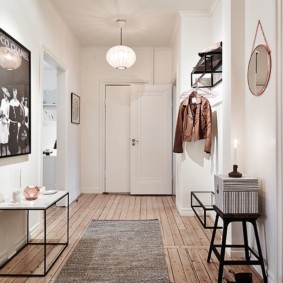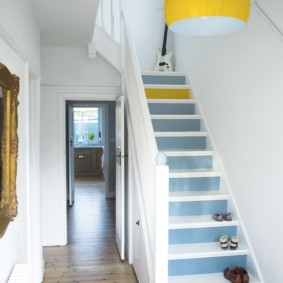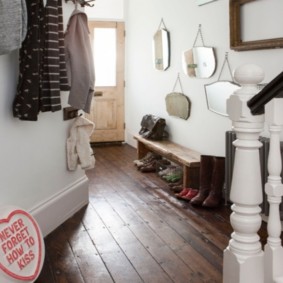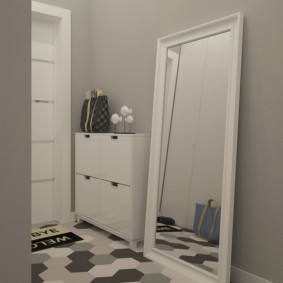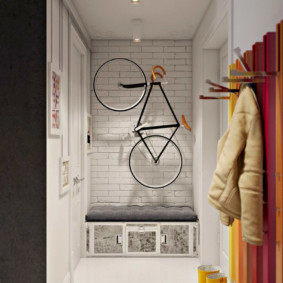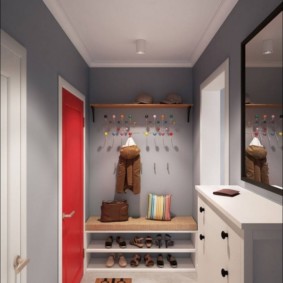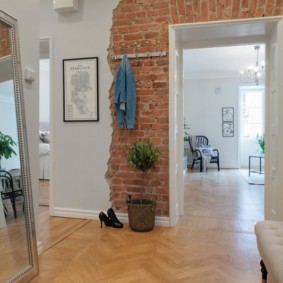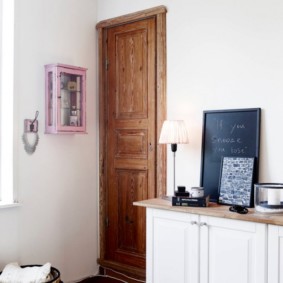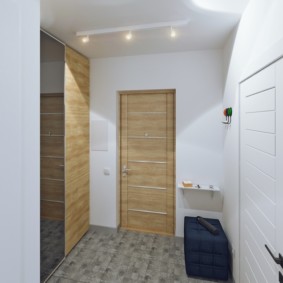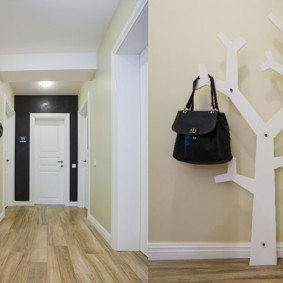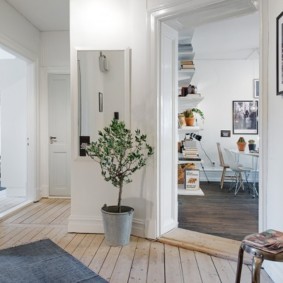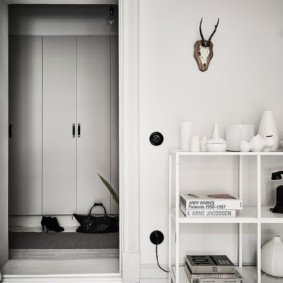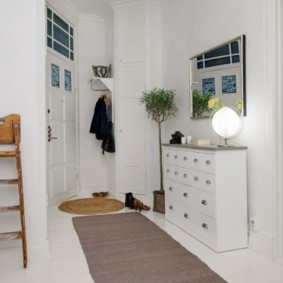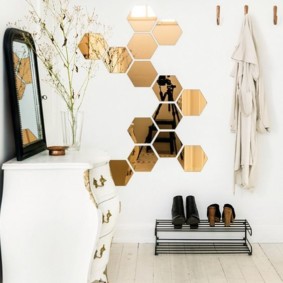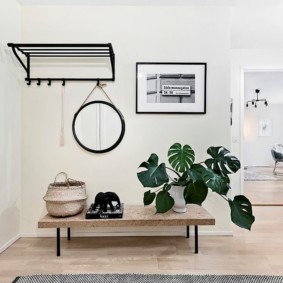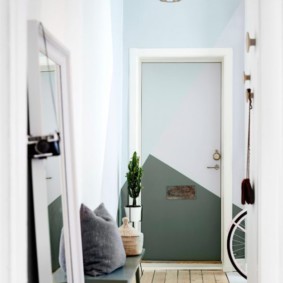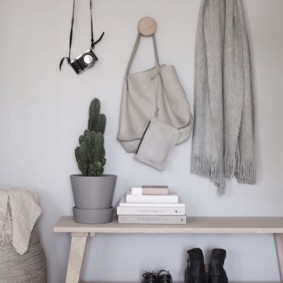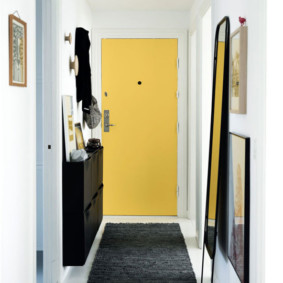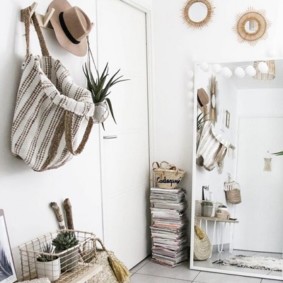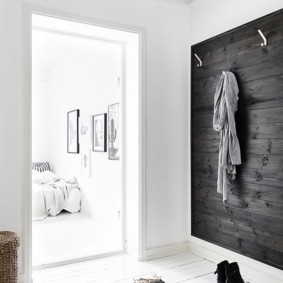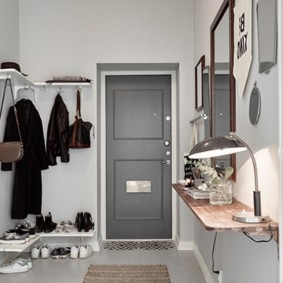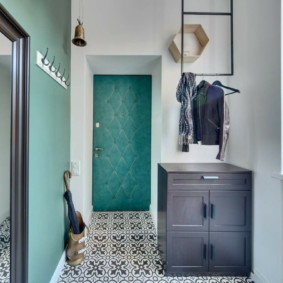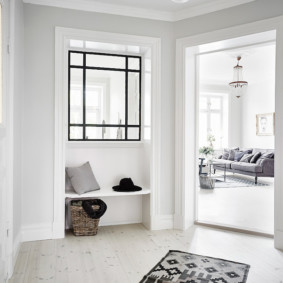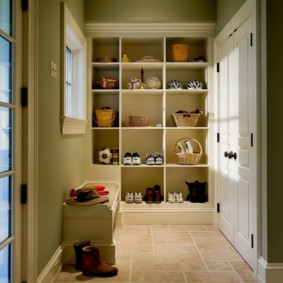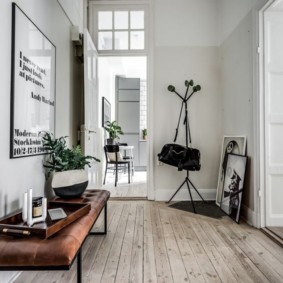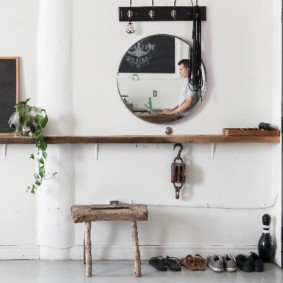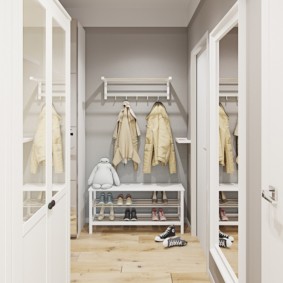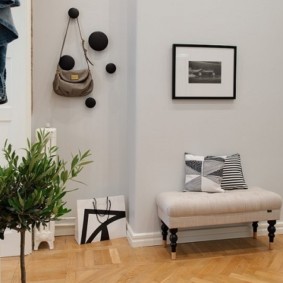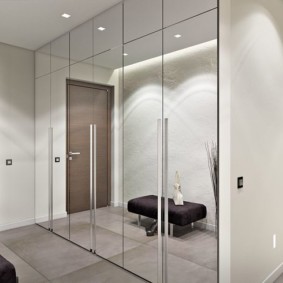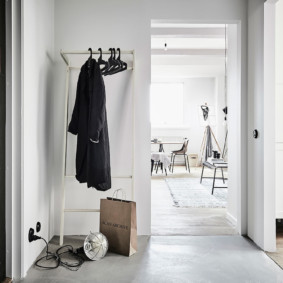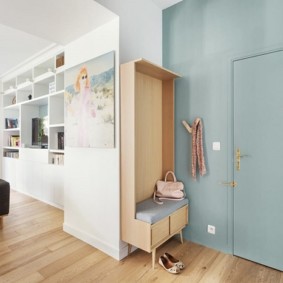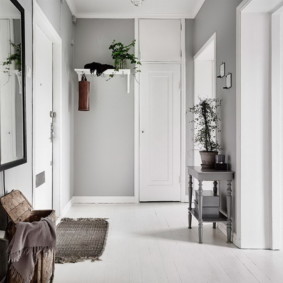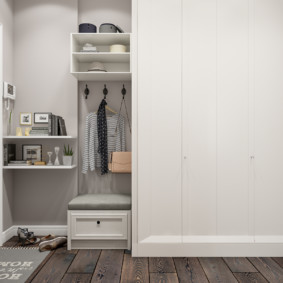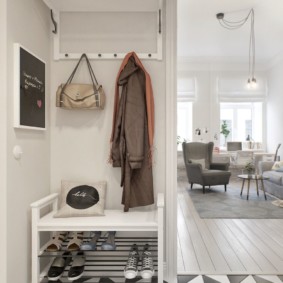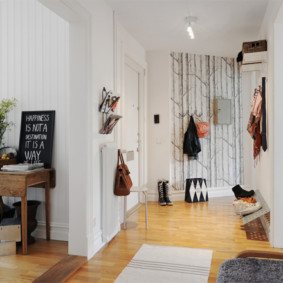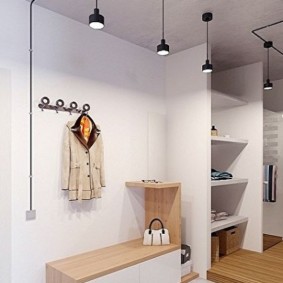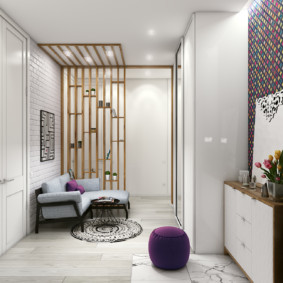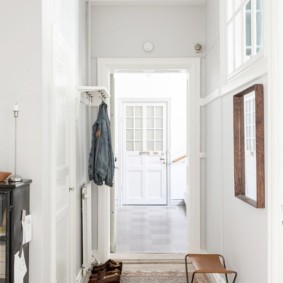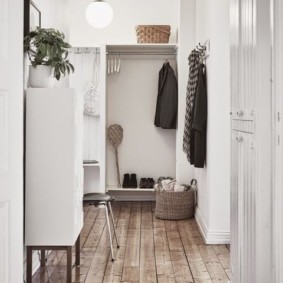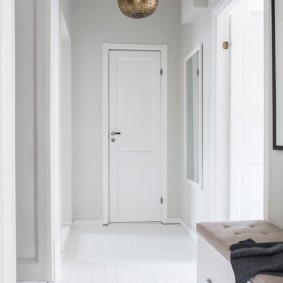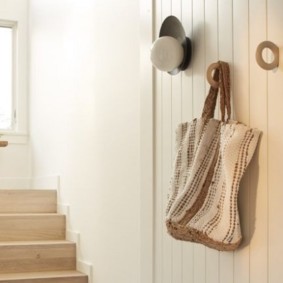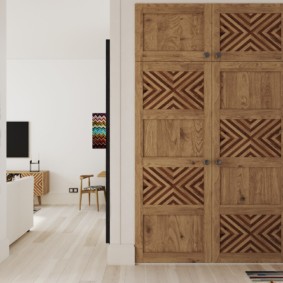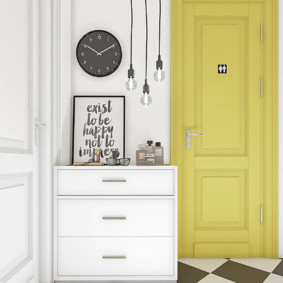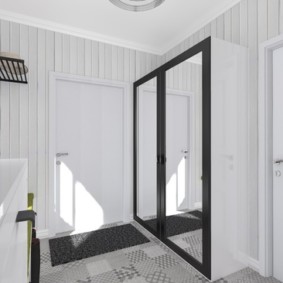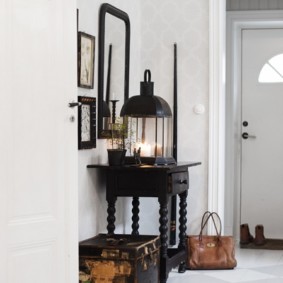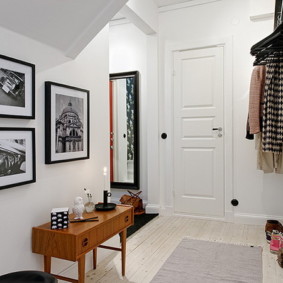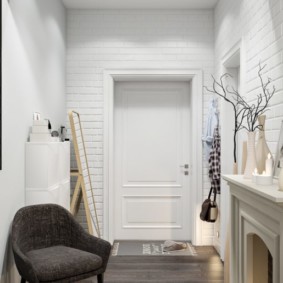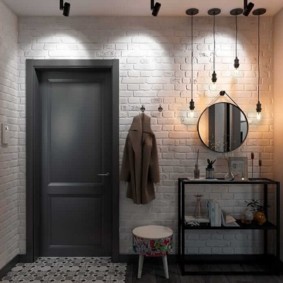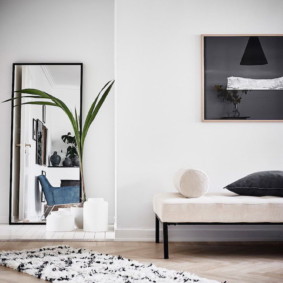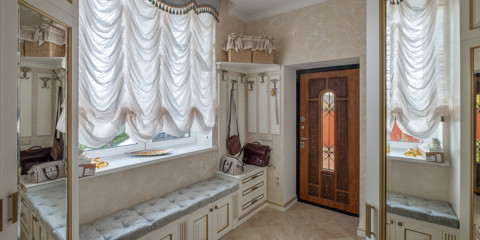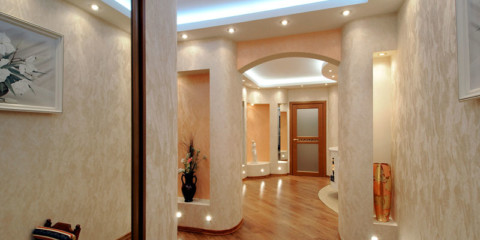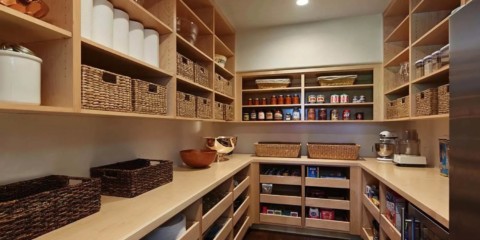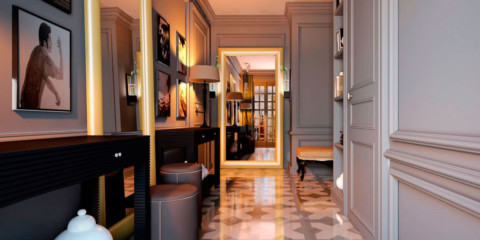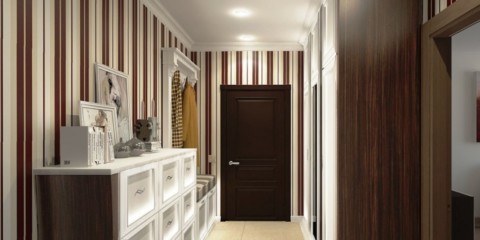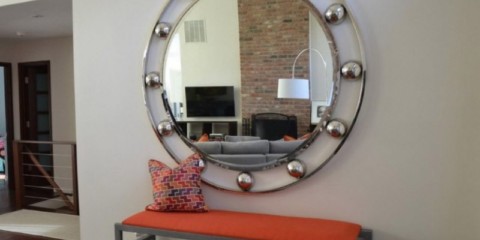 Hallway
Hallway Design Ideas with Mirrors
Hallway
Hallway Design Ideas with Mirrors
The traditions of the internal arrangement of residential premises in the northern countries of Europe became the embodiment of the views and characteristic features of the worldview of the Scandinavian peoples embodied in the interior. Scandi-style world-famous design solutions have made recognizable the typical home decoration using monotonous shades of white, which add light on the one hand and, on the other, keep the character of the northern people and the nature of the Scandinavian latitudes calm.
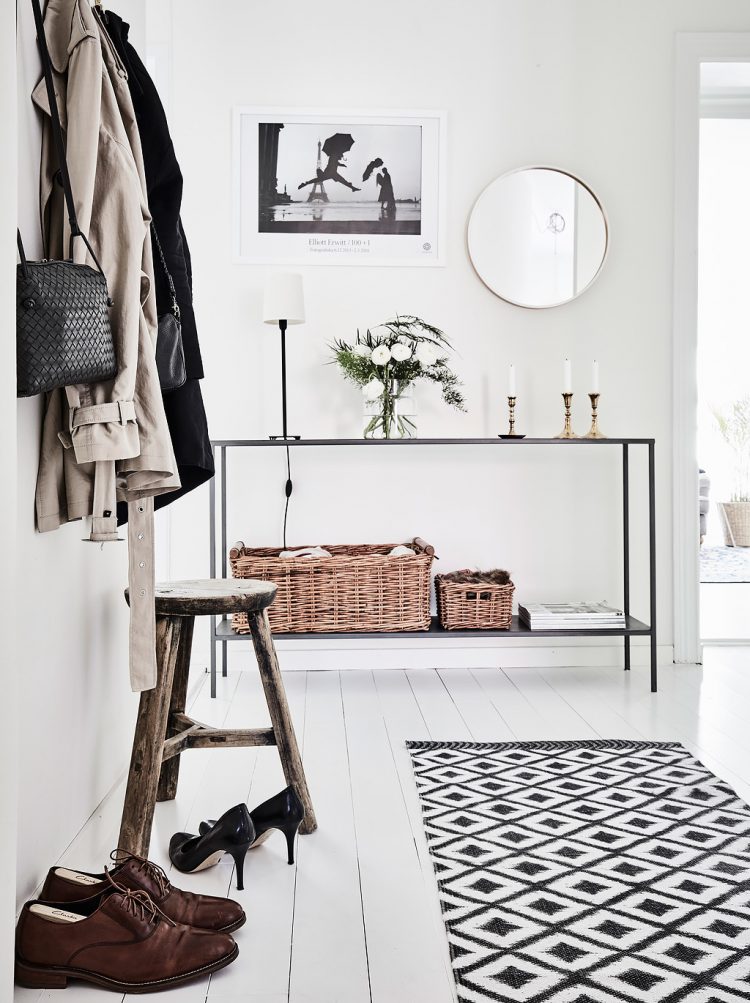
The Scandinavian interior is recognizable at first sight, it is difficult to confuse it with anything else
Hallway in the apartment
Content
- Hallway in the apartment
- Small and large hallways
- Features of the Scandinavian style in interior design
- Finished projects in the Scandinavian style
- The most interesting design decisions (selection of photos)
- Video: The main rules of the Scandinavian interior
- The most unusual design decisions (selection of photos)
The interior of the hallways in the apartments, made taking into account the peculiarities of the traditional Scandinavian style, combines the desire to compensate for the harsh winter conditions and the length of the period with a short daylight using a specific color palette in white, beige, light gray tones. Both cold and warm shades of wall decoration are acceptable.
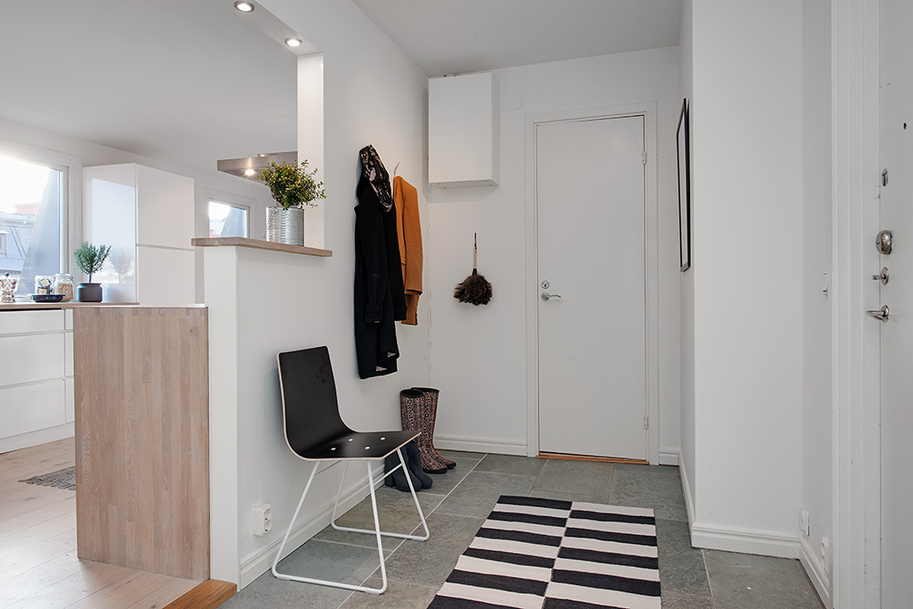
White - the main color of the interior in the Scandinavian style
In the absence of elements of eclecticism, traditional or more modern interiors in the Scandinavian style harmoniously combine related trends:
- minimalism;
- ethno and eco style;
- fusion;
- romance classics.
You can often hear that the Scandinavian interiors are a kind of reflection of the country style in the representation of northern peoples with the same stable traditions and features of applying interior solutions to please the centuries-old ideas about the comfort of housing for regions of the north that are not particularly conducive to a long stay outside the house.
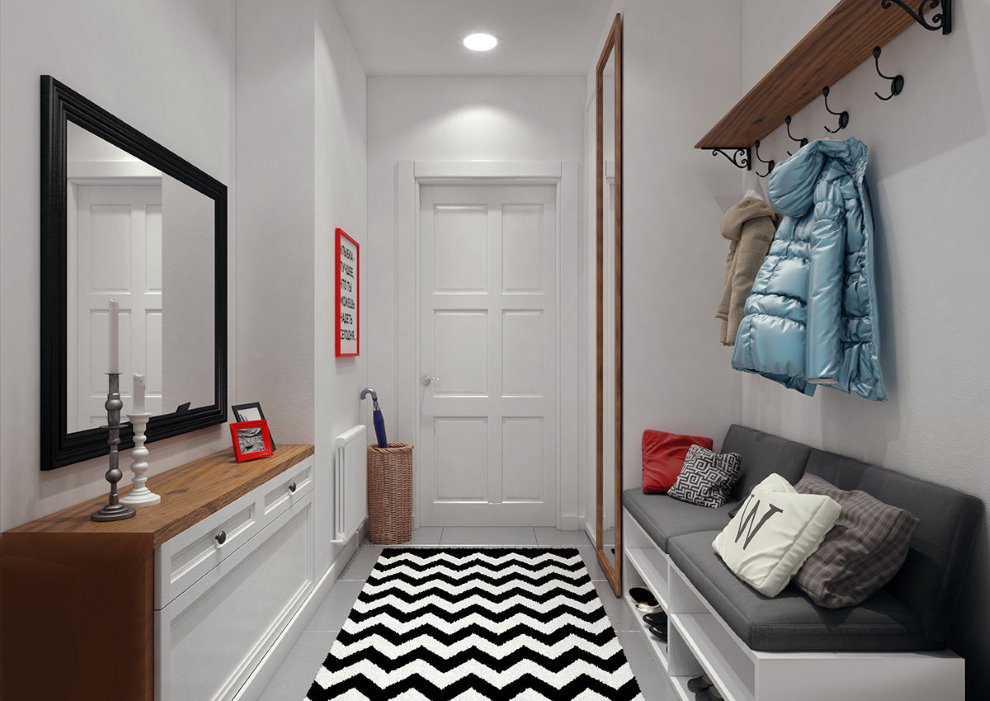
The Scandinavian style is based on the maximum use of natural materials - wood, leather and natural textiles.
Small and large hallways
A small area of the corridors of Khrushchev is perfectly suited to create an interior in the Scandinavian style. The low degree of illumination of the room due to the lack of windows is similar to an acute lack of light during a long Scandinavian winter. Due to the original selection of concise and functional decor items, it is possible to achieve the effect of simplicity, and eliminating unnecessary details to leave enough space in a small room.
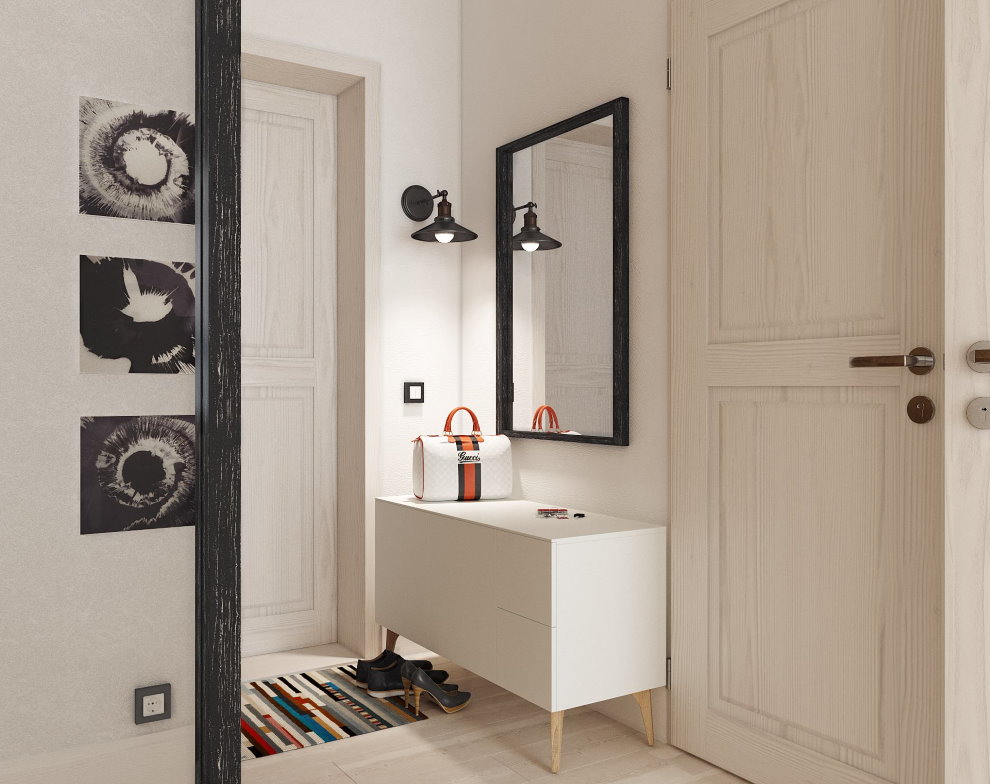
The interior in the spirit of Swedish minimalism is great for a small entrance hall in the apartment
As a way to expand the space, along with light reflecting surfaces, mirrors are used that can be framed in an unusual frame of an antique look, but not too massive and oppressive when looking at the reflection.
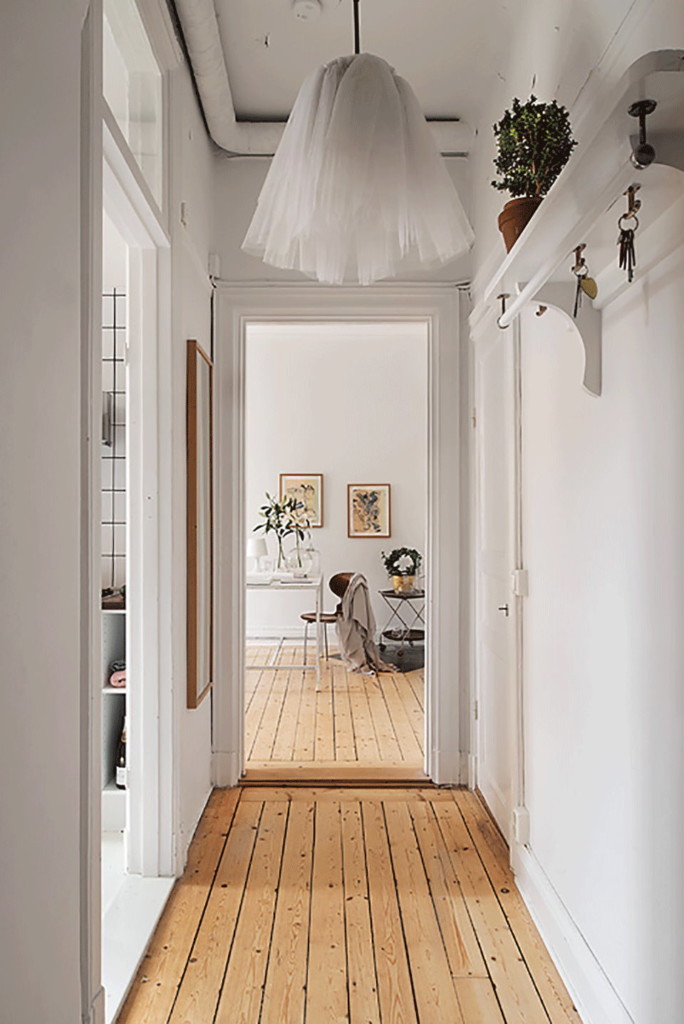
The space of the small hallway should be used as efficiently as possible and presented in the most advantageous color.
A large Scandinavian-style entrance hall looks original and recognizable in any layout regardless of the country. Here, the effect of unlimited space can be achieved more easily, as it is easier to emphasize in details the general direction of wall decoration and the color scheme of vertical surfaces. You can provide more sources of artificial lighting by adapting different types of lamps to create several options for lighting a room depending on the time of day, requirements and moods of residents.In the spacious entrance hall you can place an unusual piece of furniture, referring to the origins of the arrangement of everyday life of the northern peoples of Scandinavia in ancient times, primitive residential buildings.
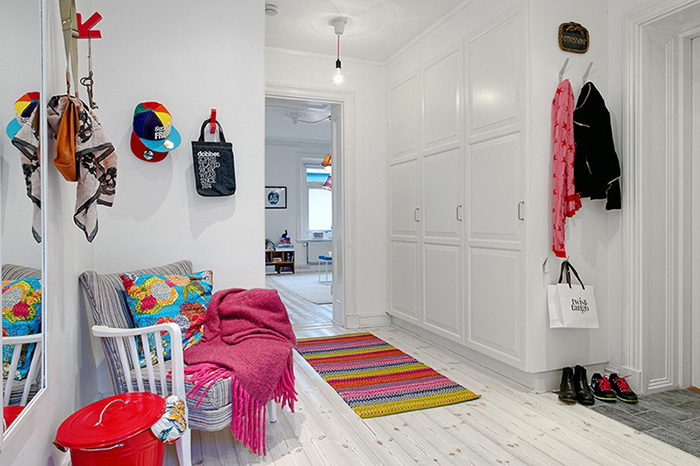
Vivid accents are acceptable, but their number is strictly limited
The influence of modern technological solutions in arranging the total area of the house in the hallway can be traced least of all: all the same simple lines and simple combinations of materials, as well as a discreet color palette make it possible to get into timelessness. Furniture and carefully selected accessories deliberately lead away from the swiftness of life inherent in the age of computer technology. Interior solutions are more reminiscent of a calm and measured way of life of past generations, and from the threshold of the hallway they tune in the reliability and stability of the hearth.
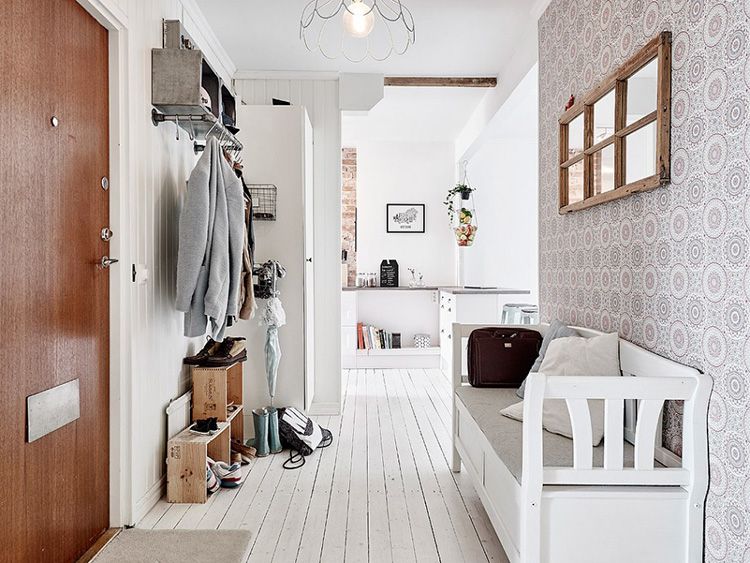
One of the main ideas of the Scandinavian interior is to design the premises in the most functional and elegant way, without spending too much money
Features of the Scandinavian style in interior design
If we omit minor adjustments, taking into account the modern features of the lifestyle of youth, we can distinguish several differences in the classic Scandinavian style:
- lack of sharp color transitions;
- bias of the general color scheme in favor of shades of white and gray;
- solid natural furniture, as if created for centuries;
- regular shapes and simple lines in the design of the room and decoration elements;
- uniform, most resembling natural lighting;
- a minimum of accessories or the use of highly artistic decor items.
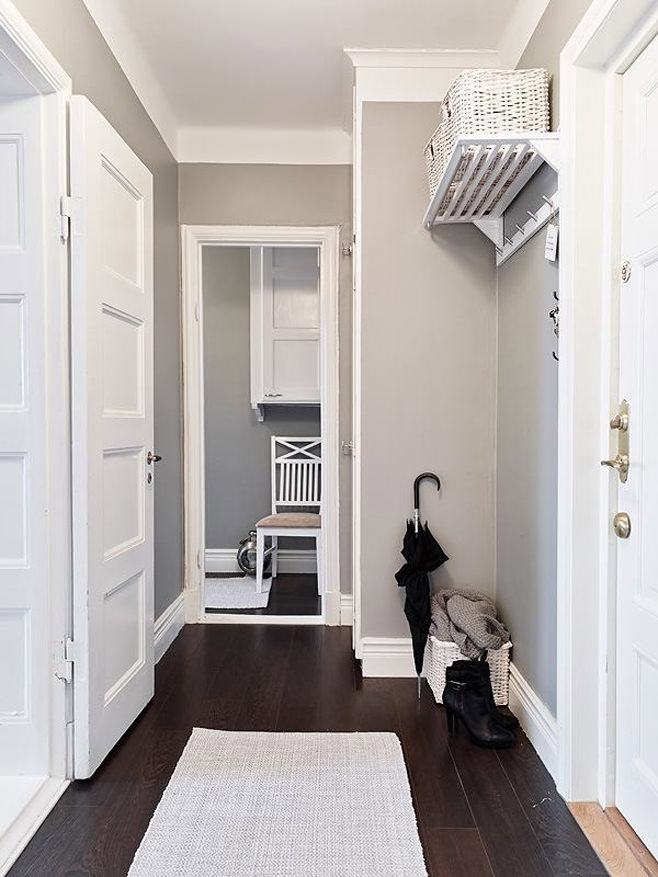
There is nothing superfluous in the Scandinavian hallway, and only light shades are used in the decoration of the walls and ceiling
Specific features of the Scandinavian style are also reflected in the selection of materials for finishing floors and walls, the choice of furniture and the planning of the location of lighting fixtures.
Floor, wall and ceiling
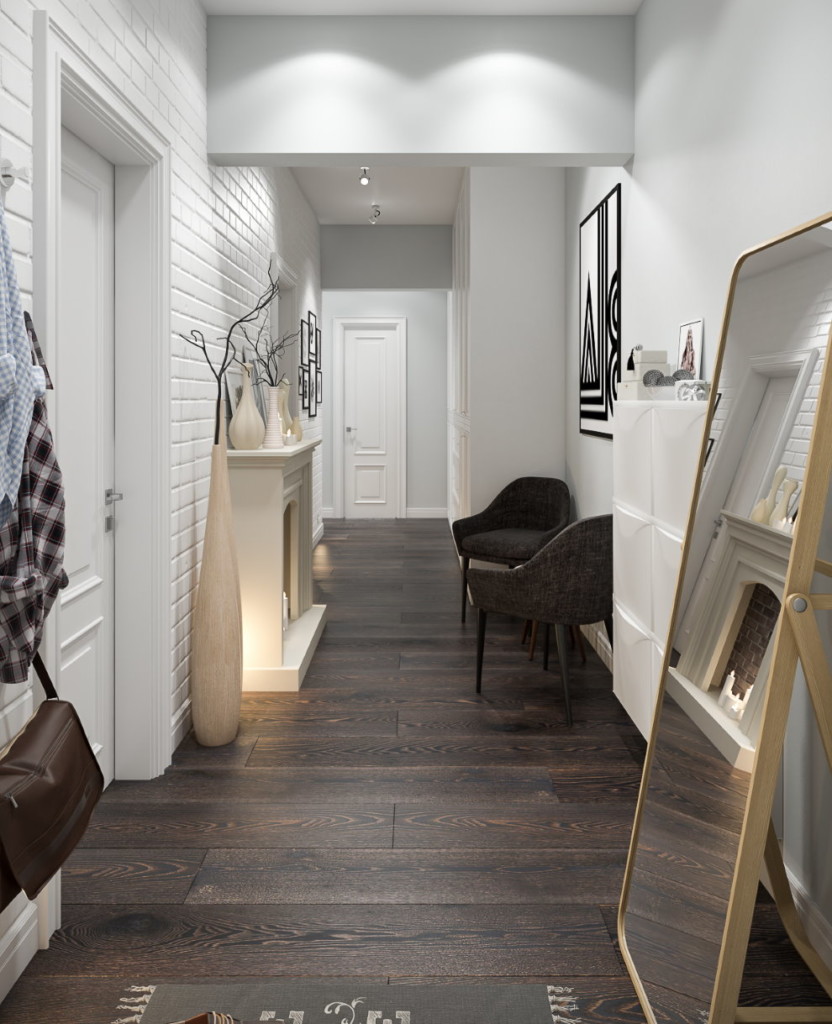
Walls in the Scandinavian style hallway can be painted or wallpaper with imitation of brickwork
A striking feature is striking in the design of the walls: almost all the Scandinavian-style corridors are a white interior without unnecessary decor and with a minimum of decoration elements on the walls and joints of horizontal and vertical surfaces.
From the options presented on the Internet for real halls in the Scandi style, you can get an idea of the customers of these interiors as fans of simplicity and light colors. The walls of such visits are not only perfectly flat, but also almost completely white. The idea of the eternal thirst of the Scandinavians for the sun and heat, which excludes not only dark surfaces, but also the properties of matte surfaces that absorb light, is quite acceptable.
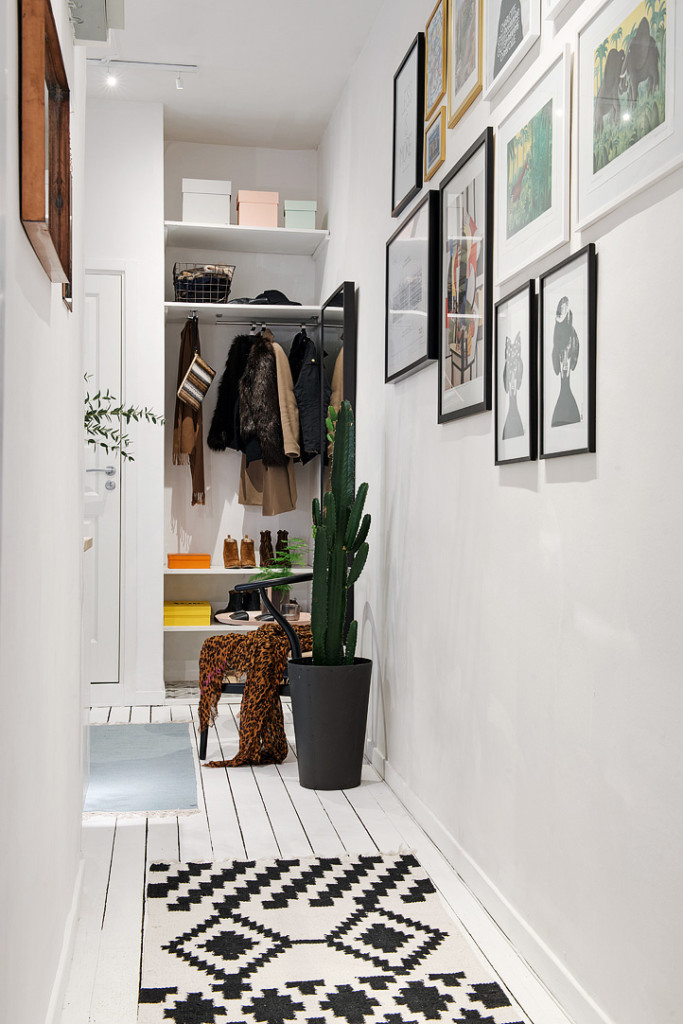
For wall decor, original lamps or paintings by contemporary artists are suitable
The flooring is also used preferably in light shades. When using artificial floor coverings, materials that imitate the texture of a tree in a traditional color scheme are chosen:
- light laminate of high quality;
- porcelain stoneware in a wood look;
- linoleum on a warm basis with a pattern that repeats a longitudinal section of a natural tree.
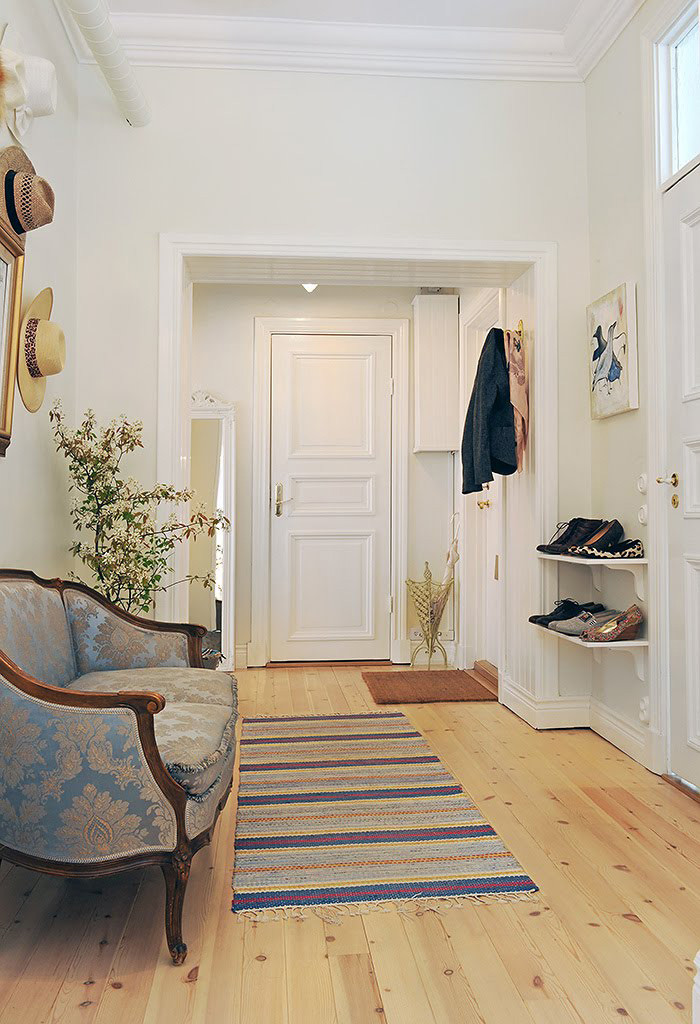
To make the interior more comfortable and the floor warm, a beautiful rug with a geometric pattern is placed on top of the floor covering
The color scheme of the floor and ceiling is usually sustained in the strict tradition of the favorite light interiors of Scandinavian houses. The natural materials of the floor have a color similar to the decoration of the walls: the white plastered vertical surfaces and the floor from the boards of bleached oak, light parquet, maple, birch or ash harmonize well.
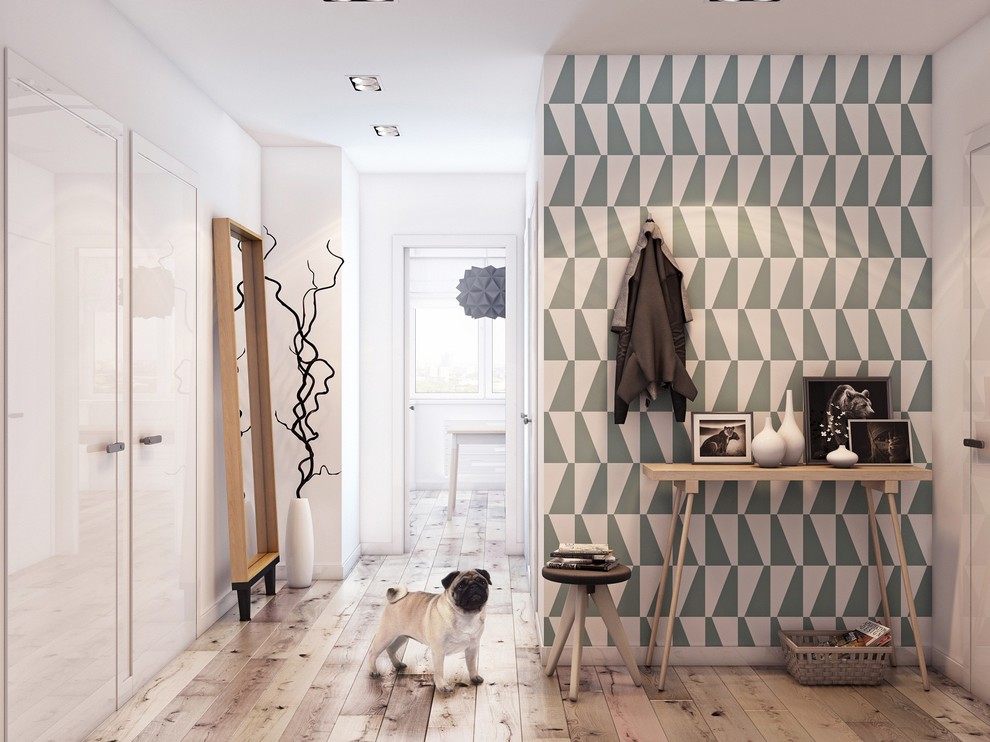
The concept of style fits perfectly with the flooring of boards, the natural structure of which is visible under a layer of transparent varnish
Light walls do not create a feeling of a limited perimeter or enclosed space, which is extremely important for maintaining mental balance during a prolonged stay indoors in the harsh conditions of the nature of the north and the prevailing uncomfortable weather conditions. The visual perception of the unusual whiteness of the interior is influenced by the lack of decoration of the walls and ceiling. Natural materials are used, preserving the texture as much as possible, sometimes they are painted white, and in most cases they are simply treated with antibacterial agents and fireproofing agents.
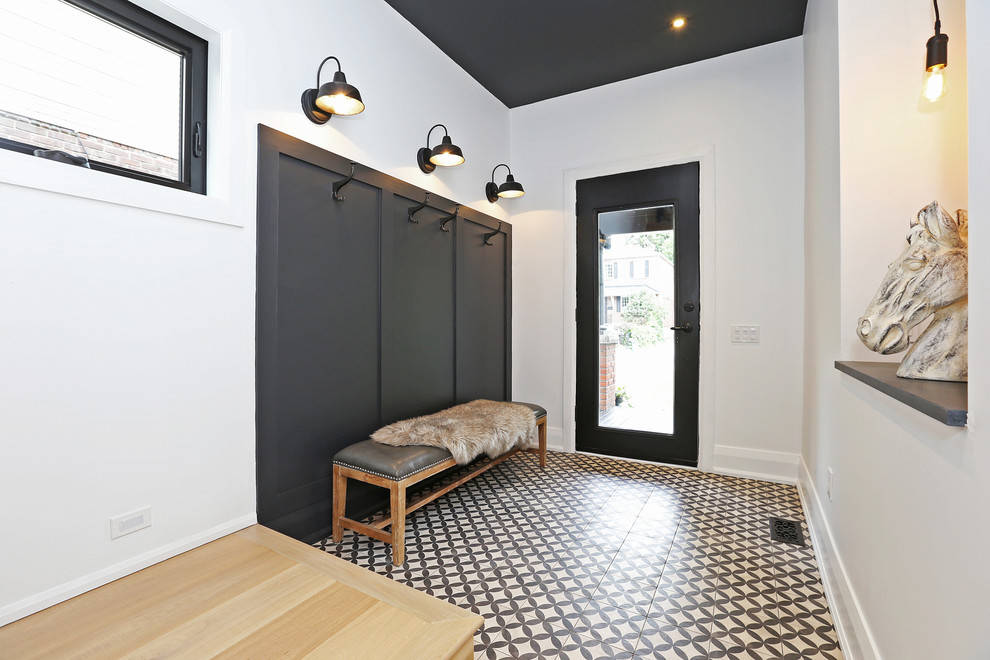
The white color of the walls can be combined with accents of gray, beige or blue or green tones
Hallway furniture
Furniture typical for Scandinavian-style interiors still refers to the long tradition of solidity and the possibility of long-term use of objects made of valuable natural materials. This is the main reason why Scandinavian furniture is highly valued in different countries and is successfully used to recreate northern interiors in modern design projects. The scandi hallway will be as furnished as the size of the room allows.
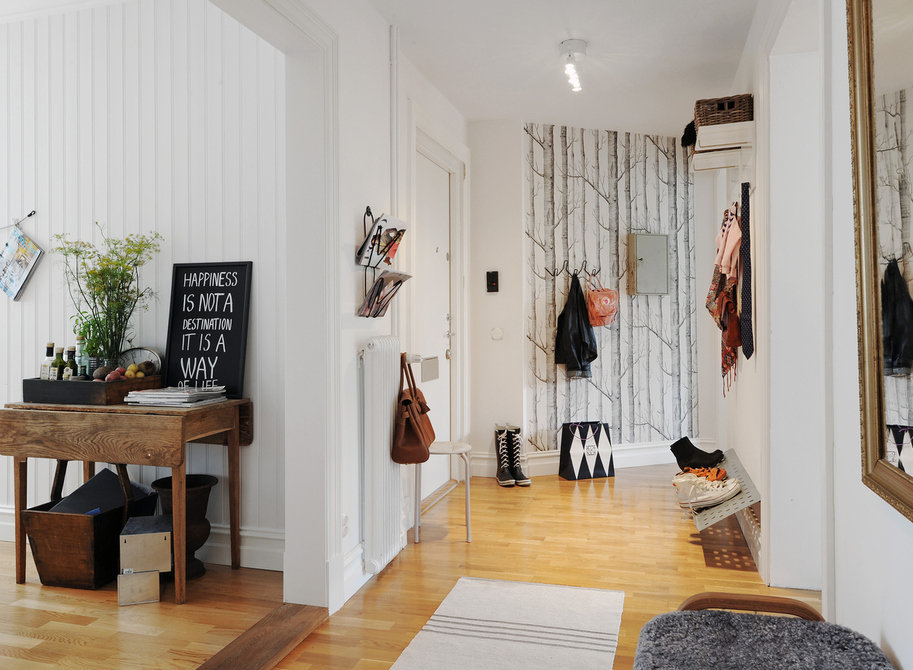
Each piece of furniture is in its place and has a purely practical value.
It is difficult to imagine a Scandinavian interior with a heap of cabinets, shelves, chairs, armchairs and nightstands. Rather, you can see the hallway with a minimal set of furniture, which allows not to limit the functional purpose of the room. The selection of each element and accessory is given special attention, so that in the future there is no desire to constantly change something and buy new furniture before the usual service life.
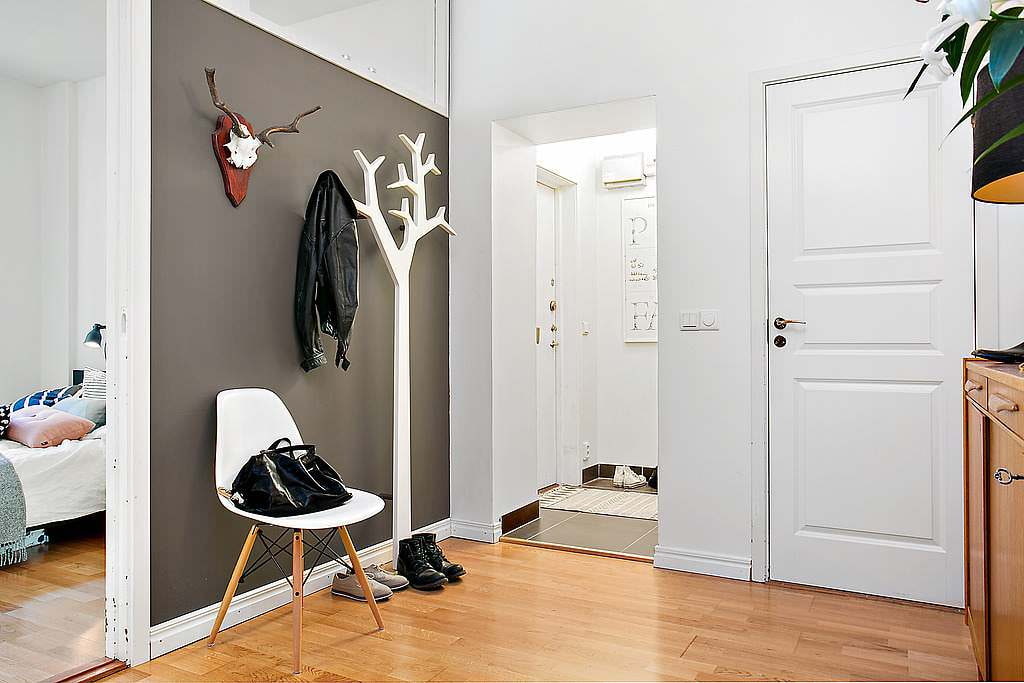
In this hallway, the Scandinavian style is emphasized by the original hanger, reminiscent of both deer horns and wood
Hallway lighting
The lighting of the entrance hall in the traditions of the peoples of the European North supports the general principle of the unity of the inner space of the dwelling. As there is no sharp transition from one room to another, so the degree of illumination practically does not change throughout the house. To do this, the lamps in the hallway are placed in such a way as to achieve the effect of natural daylight, choosing in accordance with this requirement the number and range of lamps. In this embodiment, when moving around the house, it will not be possible to observe sudden changes in light, characteristic of rooms with chandeliers in the center of the ceiling.
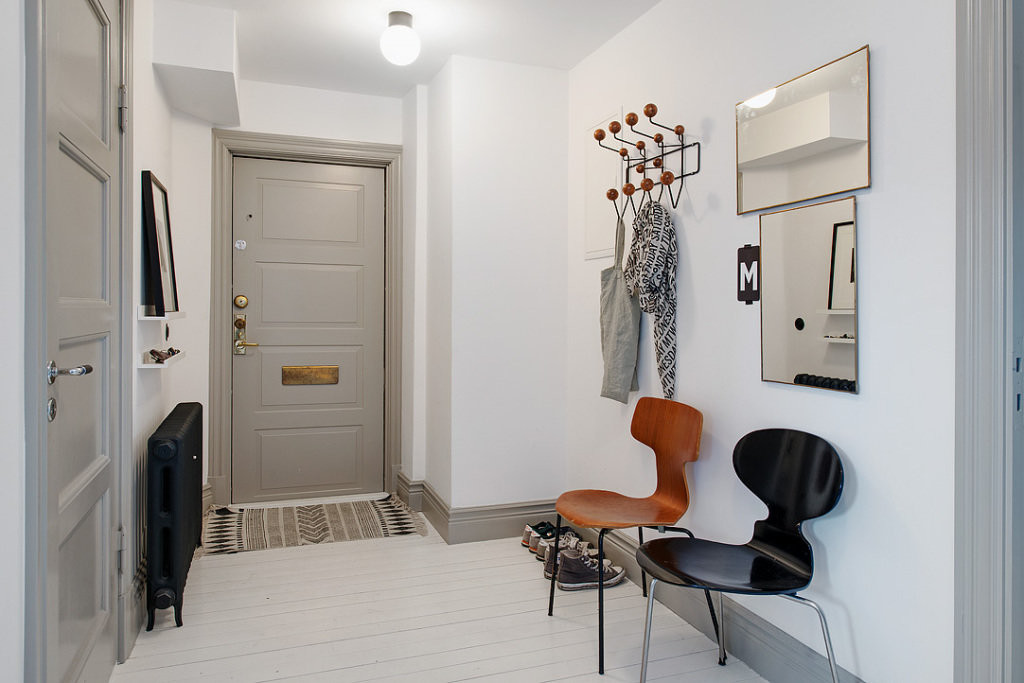
The Scandinavian style entrance hall should look great not only during the day, but also in the evening, when the sun is hiding behind the horizon.
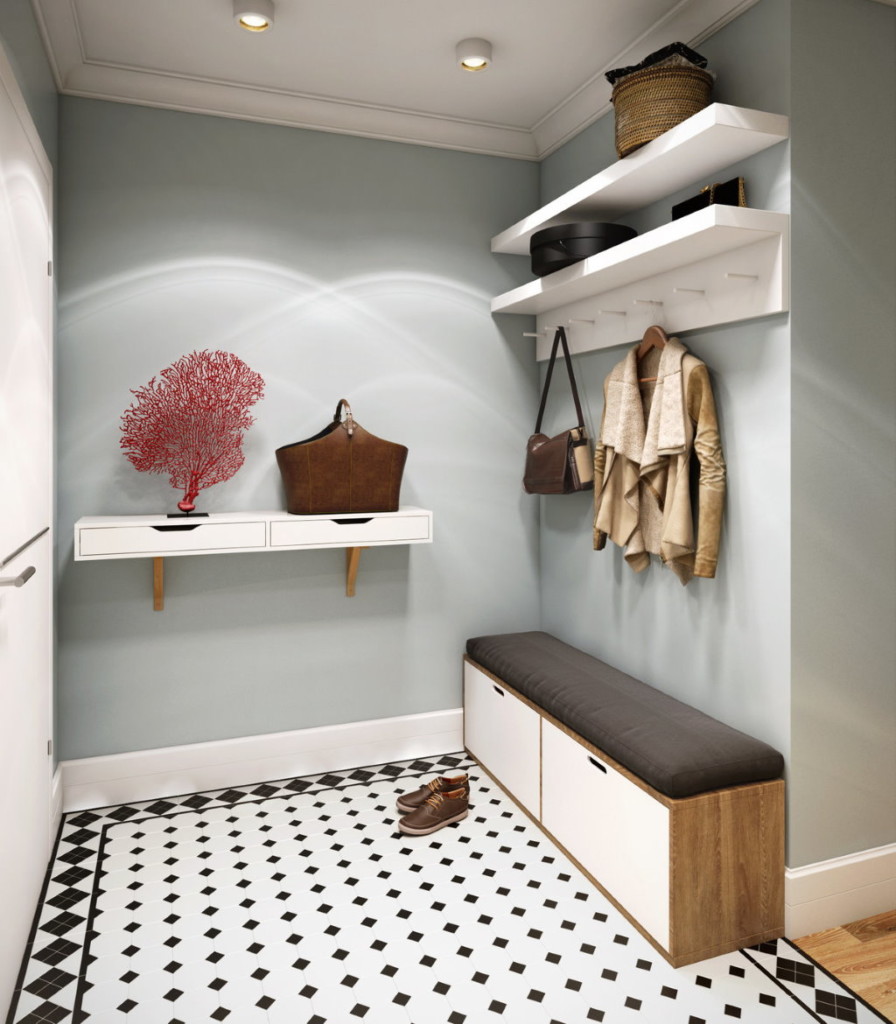
The main ceiling lighting must be combined with auxiliary lights located on the wall.
Scandinavians prefer LED lamps with a uniform arrangement in the interior and variability of use depending on the tasks of the current moment. The reflective properties of mirrors are skillfully used: located in the right place, it is able to direct the light flux into a dark corner, illuminating it without the use of lamps or sconces.
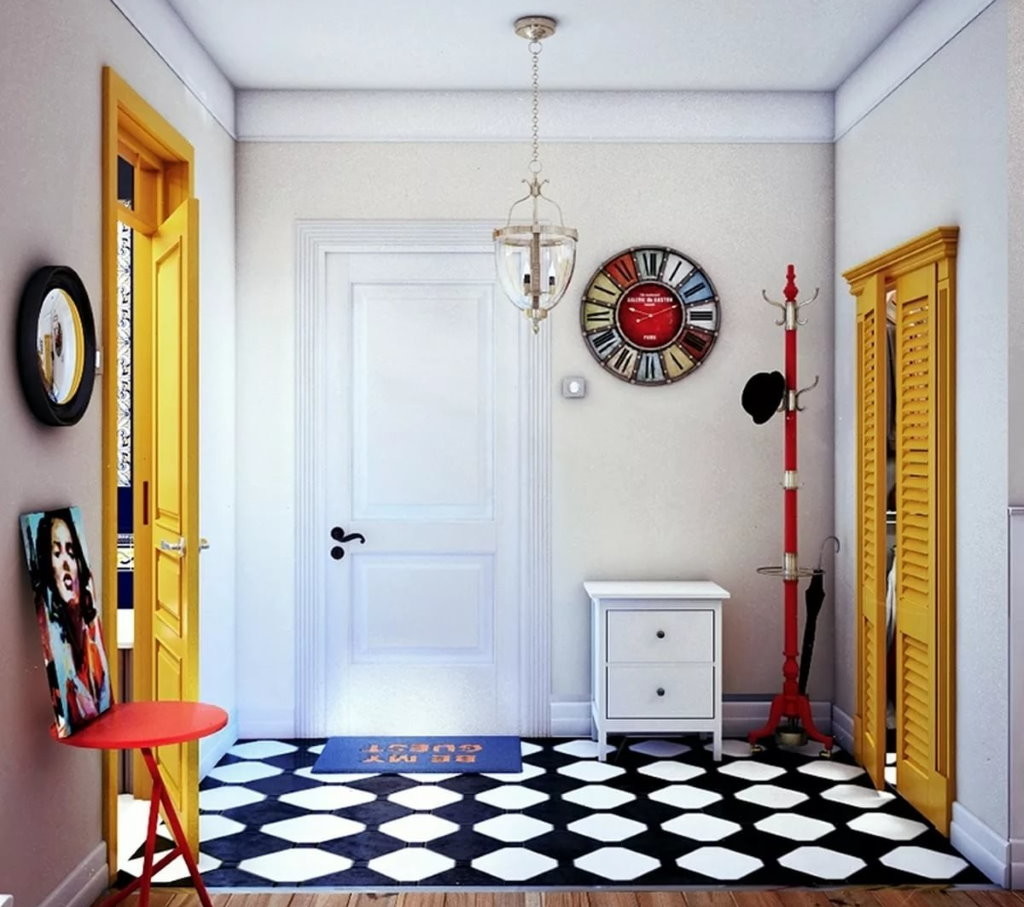
As the main lighting, you can use a chandelier or an original design lamp
Finished projects in the Scandinavian style
Designers like to dream up on the interiors of small hallways. Selecting and skillfully combining details, it is possible to convey not only the general style, but also the subtle artistic taste of the inhabitants of northern Europe.
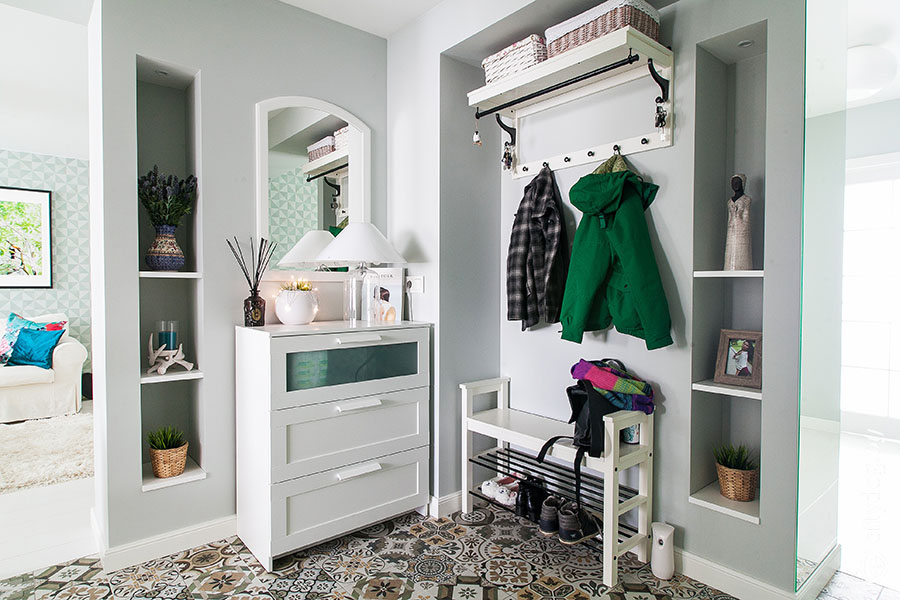
The monochrome interior of the hallway is successfully diluted with floor tiles with patterns
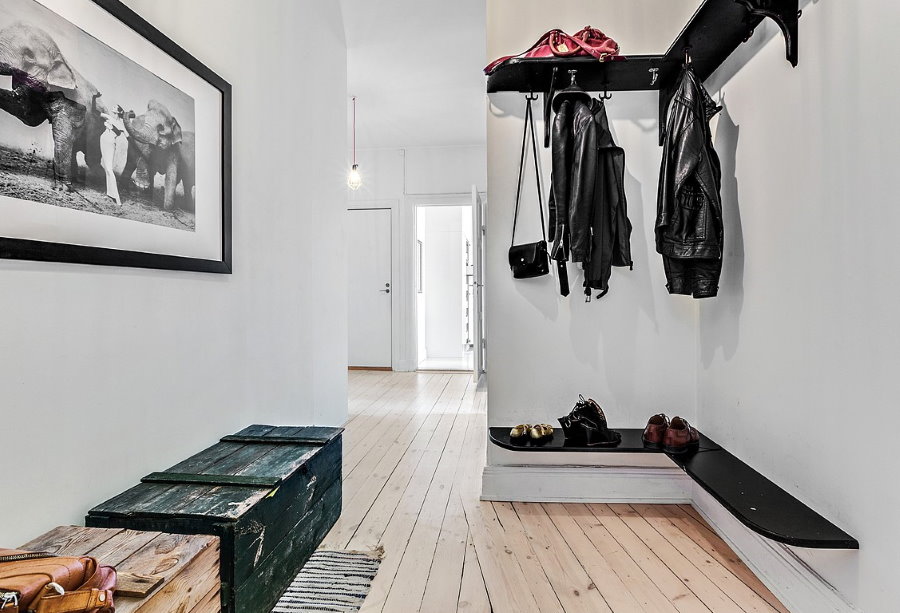
Instead of pouffes - wooden boxes that are used to store things
For large hallways, a manifestation of the Scandinavians' innate instinct for the arrangement of interior items is possible. With sufficient space, both the number of furniture and the number of layout options increase significantly.So in large halls, the individuality of the owners of the house is better read: there are personal items, photographs in frames on the walls, antique objects or expensive antiques.
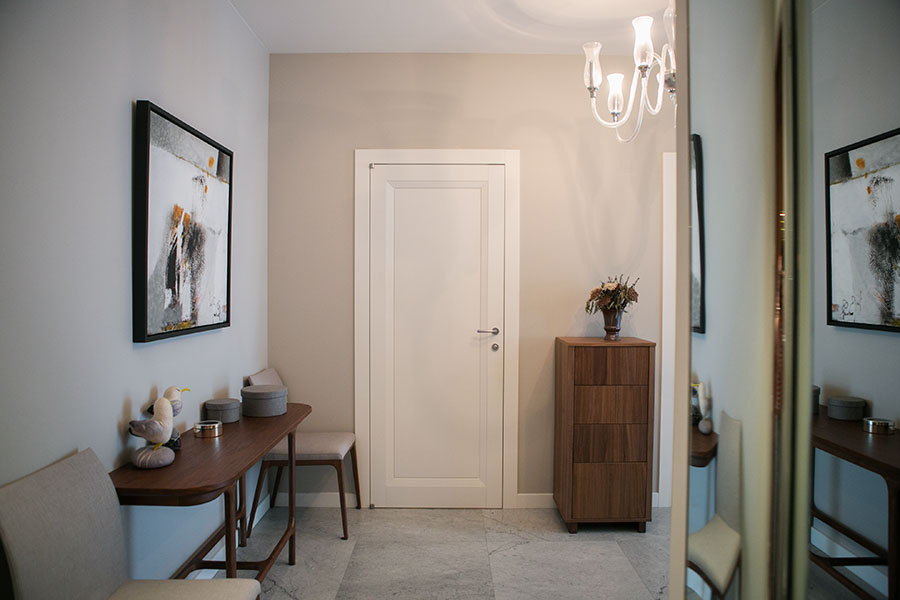
Instead of a bulky chest of drawers - a small table with chairs. The solution is extraordinary, but interesting
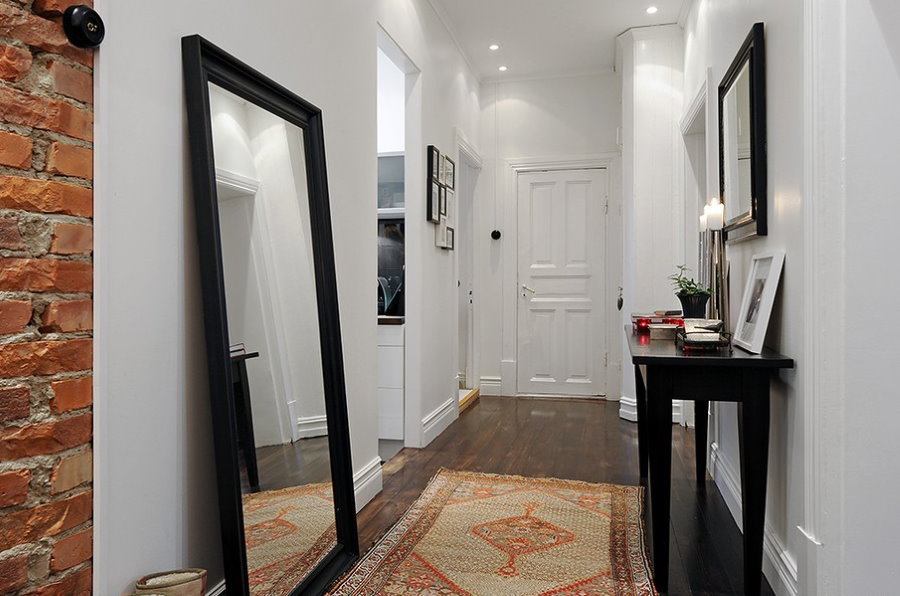
In Scandinavian hallways you can often find a huge mirror mounted directly on the floor
The most interesting design decisions (selection of photos)
When designers try to somehow beat the Scandinavian style in a special way, this is not done for the sake of momentary fashion requirements or the whims of the public. All the most interesting solutions are still acceptable options for permanent residence. It is not the Scandinavian interior that is created, but the coziness and comfort, which is so important when the inhospitable nature and climate of the northern latitudes.
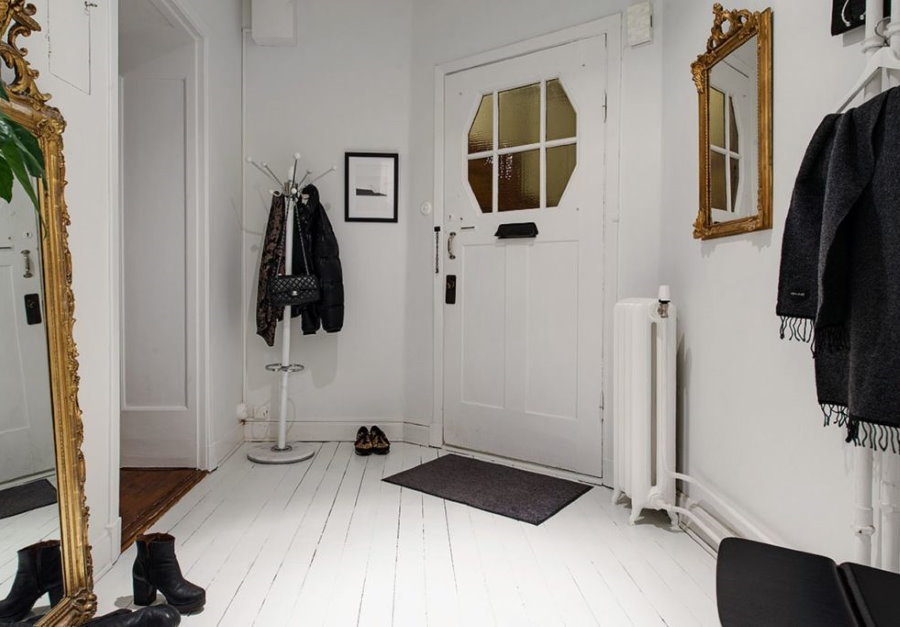
Many apartment owners install a second interior door, which hides a massive metal door and complements the Scandinavian interior
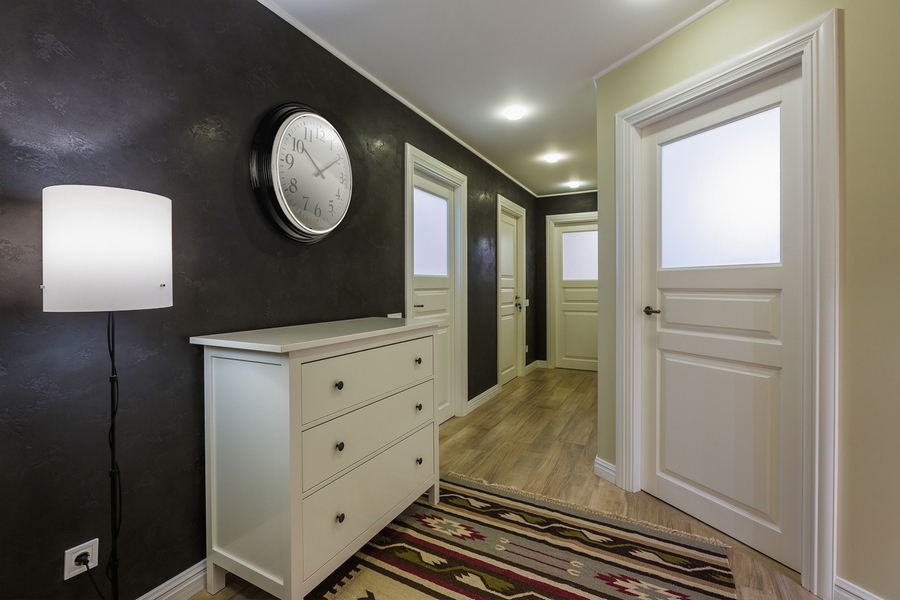
The dark graphite wall is not exactly a “Scandinavian” solution, but it looks great
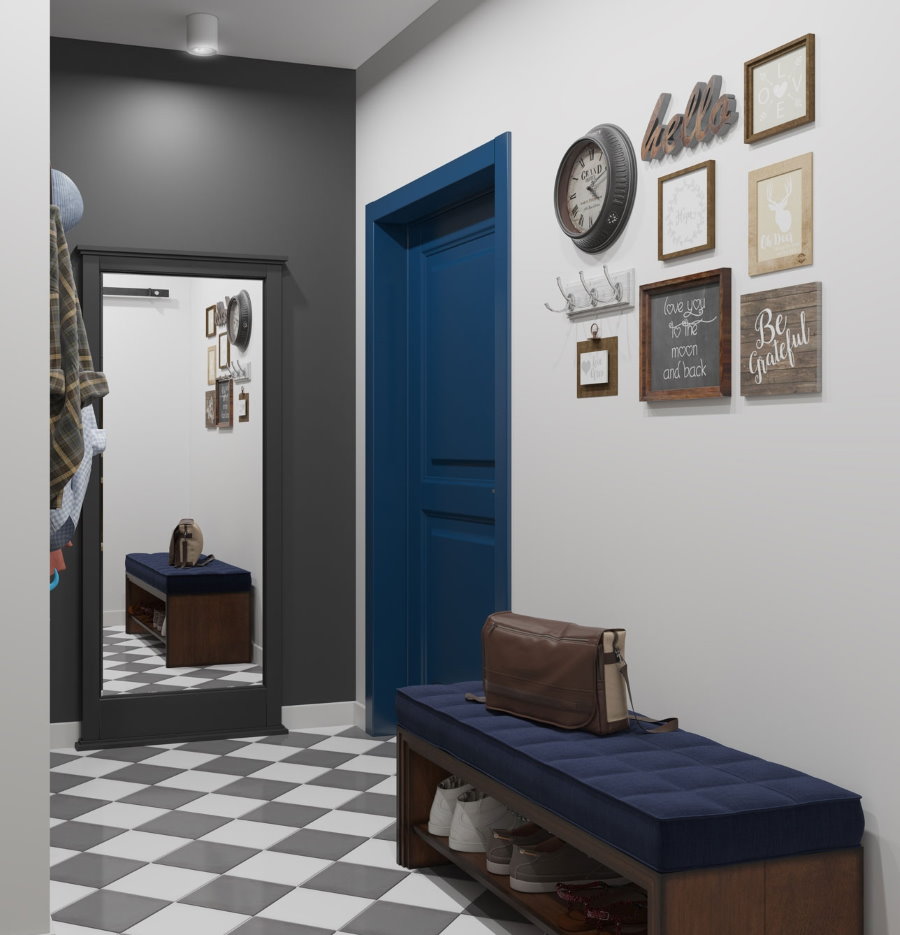
Another good example of a contrasting interior design of an entrance hall, in which colors of different spirit coexist
Video: The main rules of the Scandinavian interior
The most unusual design decisions (selection of photos)
The introduction to the cult of white hallways of other colors of the palette looks already unusual and original. Sometimes the impression of novelty is enhanced by the use of ethnic or floral ornamental patterns in decorating surfaces. Avoiding the classical canons is not so widespread, but the influence of other styles is increasingly felt, some of them in combination with traditional Scandinavian elements look very unusual.
